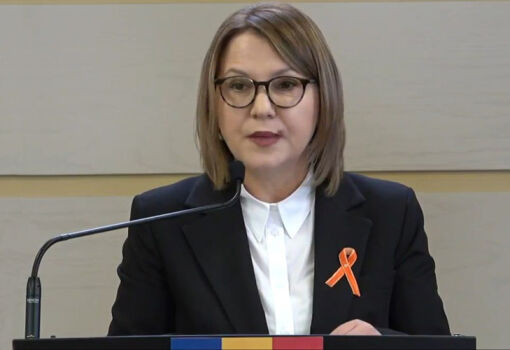
In addition, the ocean is critical to the global economy. In 2023, trade in ocean-related goods and services reached a record high of $900 billion and $1.3 trillion, respectively. Fisheries support 600 million people (mostly in developing countries), and the marine biotechnology market is projected to reach $6.4 billion by 2025.
The ocean is also important for the sustainability of the planet. Through a multitude of processes, it plays a role as a climate regulator, absorbing about 25% of anthropogenic carbon dioxide emissions, and as a key driver of biodiversity. But there are worrying trends in the ocean’s performance of these two functions. In 2024, the Global Ocean Health Index dropped sharply: there was a marked drop in habitat indicators, and in the number of species, including the most well-known ones. Overall, scores declined in 187 of the 220 regions assessed.
All is not so bleak, however. By the end of the UN Ocean Conference in June, 50 countries had already ratified the UN Treaty on the High Seas, and another 19 had promised to do so this year. With the treaty tantalizingly close to becoming a binding agreement (60 countries need to ratify it), we may soon see a significant increase in marine conservation in international waters.
Yet humanity is not investing enough in the sustainability of the oceans. The High-Level Panel on Sustainable Ocean Economics (or “Ocean Panel,” which includes 18 coastal leaders) estimates that less than 1% of the value created by the oceans has been invested in sustainable projects through philanthropy or official development assistance over the past decade.
What needs to be done? “The Oceans Group has identified five priorities of its own: sustainably manage seafood production, combat climate change, halt biodiversity loss, seize the chance to rebuild economies from climate and ecosystem shocks, and take a comprehensive approach to ocean governance.”
In recent years, significant progress has been made towards establishing financing mechanisms for these objectives. As our experience at Deutsche Bank shows, the rules for pre-appraisal of projects have expanded to take ocean protection into account, in line with global rules. These rules include the “Principles for Financing a Sustainable Blue Economy,” endorsed by the UN in 2018 to support the achievement of Goal #14 “Life under Water” from the Sustainable Development Goals (SDG #14) program. Deutsche Bank also became the first bank to join the Ocean Risk Resilience Alliance (ORRAA) as a full member, as well as the #BackBlue commitment initiated by the alliance and supported by the UN.
These guiding rules are becoming clearer. For example, the “Ocean Investment Protocol 2025” (initiated by the UN Global Compact and the UN Environment Program Finance Initiative) provides a practical roadmap to help financial institutions, insurers and development banks manage ocean risk and find investment opportunities that will support work on SDG #14.
Such global agreements will continue to shape internal regulations, risk assessment methodology, and investment strategies in the financial sector, helping to standardize definitions, increase transparency, and scale up financing for a sustainable ocean economy. At the same time, financial innovations (including credit guarantees, blended finance, project aggregation) will help make ocean investments more attractive to traditional capital.
I do not want to downplay the significance of the challenges that remain. Many ocean projects are difficult to scale, and investment proposals and solutions remain extremely scarce. Despite the progress mentioned above, a number of elements of current investment principles are difficult to put into practice, and lack of data remains a serious problem.
Nevertheless, resources are available and the financial system is developing tools to mobilize them for ocean health. In thinking about this work, it is always worth keeping in mind the different goals that potential investors may have and how sustainable ocean finance could best help achieve them. As Head of Personal Banking at Deutsche Bank, I know that many investors – private and institutional – have an appetite to invest in sustainable oceans. By creating innovative financial solutions for these clients, we often begin to collaborate with other partners – interstate development banks and financial institutions in developing countries.
But what do investors really want from investing in sustainable oceans, and how can we best meet their expectations? Typically, they want a visible return: a real-world impact (called ‘impact’), such as coral conservation, or a financial return, or a combination of both. While impact can be measured separately, most investments in sustainable oceans combine impact with financial returns, and it should therefore be possible to evaluate these investments in terms of the overall investment portfolio. Otherwise, the pool of potential investors in the oceans will narrow – along with our ability to increase ocean investment.
Financial innovation can play a key role, and I expect significant developments in the months and years ahead. Notable new projects in the financial market include a collaboration between an environmental organization and a major global insurance company that are creating reef insurance products, and the Asian Development Bank’s Blue SEA Financial Center to help Southeast Asian countries structure their blue economy investments. I would also mention the blue guarantee company Nautilus. It was established in March this year by the ORRAA alliance and the Development Guarantee Group platform to attract private capital by guaranteeing investments in six key blue economy sectors, among them sustainable seafood production, ocean protection, and blue infrastructure.
The importance of existing and new ocean funds that attract public and private capital should also not be overlooked. As the Korean Ocean Business Corporation’s (KOBC) successful $300 million blue bond offering in April showed, if the issuer is able to present a compelling case, investors respond. The key is sound investment theses – combined with the cooperation of private and public sector entities.
Improving and scaling blue finance will require determination, commitment, and continuous innovation to create and institutionalize investment-attractive solutions. Finance must be directed to support ocean health – it is an undeniable necessity for the planet and humanity. It will probably be a long time before people fully understand the ocean. But there is no secret that we urgently need to rethink and improve the way we finance the oceans.
Claudio de Sanctis,
Head of Personal Banking and Member of the Board of Deutsche Bank.
© Project Syndicate, 2025.
www.project-syndicate.org



